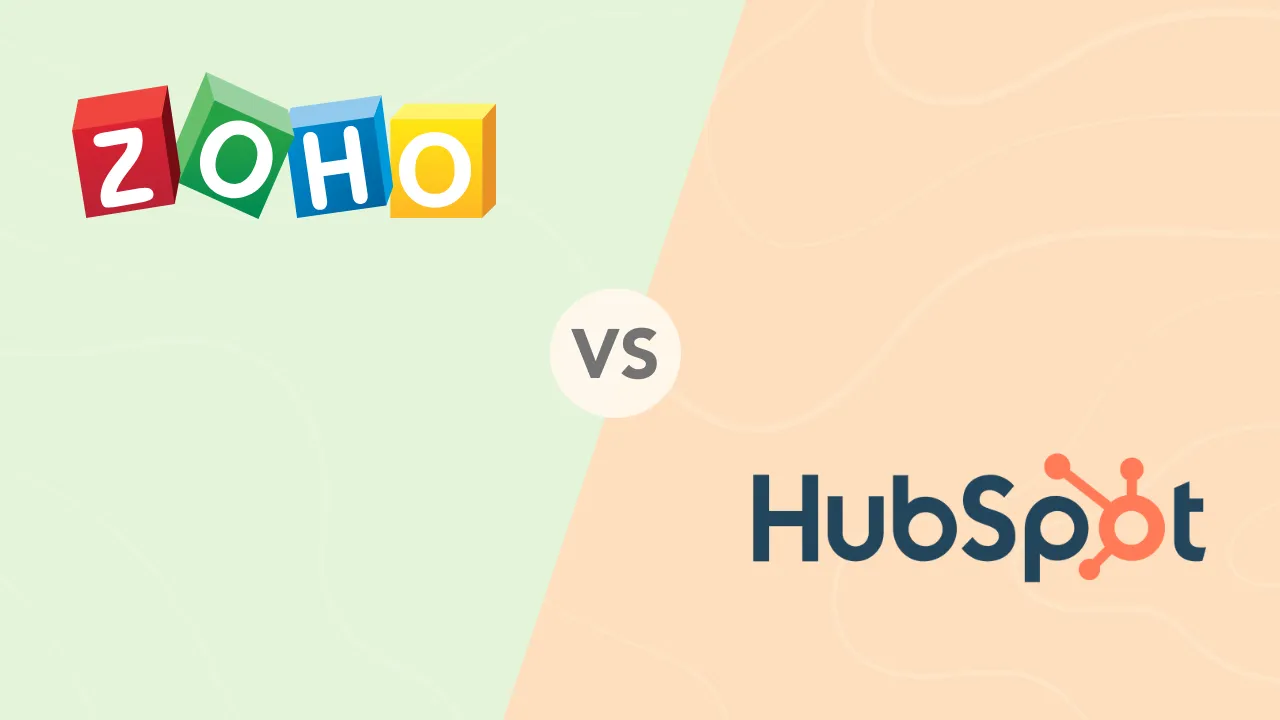How Much Is My Website Worth? Evaluate Your Online Business

Unlocking the Value of Your Digital Asset
Imagine your website as a valuable piece of property, a digital storefront, or even a thriving online community. Just like a physical asset, your website holds inherent value, and knowing how much it’s worth can be crucial for various reasons. You may consider selling your website, attracting investors, or want to understand its potential. This guide will equip you with the tools and knowledge to accurately assess the value of your website. One such tool is a free website value calculator, which provides quick estimates and detailed reports about the worth of a website. Online websites can be evaluated and facilitated for buying and selling through platforms like Flippa and Empire Flippers, using various metrics such as business model, website category, traffic, financial performance, authority score, referring domains, backlinks, and keywords. Additionally, selling online businesses is significant as it highlights the potential revenue generation from established online businesses and the importance of domain age in the market.
Website Valuation: Basic Calculations
While website valuation is complex, here are some simple formulas to get a basic idea of your website’s potential value:
-
Income-Based Valuation:
This method focuses on the website’s current and projected future earnings. A common approach is an earnings multiplier, where the monthly revenue or profit is multiplied by a factor typically ranging from 24 to 36.- Website Value=Monthly Revenue or Profit×Multiplier (24 to 36)
-
Traffic-Based Valuation:
This method uses website traffic as a key indicator of value.- Website Value = Average Daily Visitors x Traffic-to-Value Ratio ($0.01-$0.10)
-
Asset-Based Valuation:
This method assesses the value of the website’s tangible assets, such as the domain name, content, and software.- Website Value = Domain Name Value + Content Value + Software Value
Example Website Valuation:
Let’s say you have a website with the following characteristics:
-
Annual Revenue: $50,000
-
Average Daily Visitors: 5,000
-
Traffic-to-Value Ratio: $0.05
Using the formulas above, we can estimate the website’s value:
-
Income-Based Valuation: $50,000 (annual income) x 3 (multiplier) = $150,000
-
Traffic-Based Valuation: 5,000 (daily visitors) x $0.05 (ratio) x 365 (days) = $91,250
-
Asset-Based Valuation: This would require a more detailed assessment of the website’s assets, such as the domain name, content, and any software used.
Best Website Builder Providers
 Choose from 800+ designer made templates
Choose from 800+ designer made templates  1000+ innovative small business features
1000+ innovative small business features  Over 3M already chose web.com
Over 3M already chose web.com  Award-winning software
Award-winning software  Used by millions of businesses across the globe
Used by millions of businesses across the globe  Fully customizable, user-friendly interface
Fully customizable, user-friendly interface  Easy drag & drop WordPress builder
Easy drag & drop WordPress builder  Get started with over 300 templates
Get started with over 300 templates The Earnings Multiplier Calculation for Website Value
Additional Considerations:
-
Brand Value: Websites with established brands and loyal followings tend to command higher multipliers. A strong brand reputation can translate into higher revenue streams and a greater potential for future growth.
-
Traffic: While not directly incorporated into the formula, website traffic can influence the multiplier. A website with significant traffic and high user engagement often demonstrates a stronger potential for future growth and monetization. Additionally, the traffic value, which estimates the monthly cost of traffic from all keywords a site is ranking for if paid via PPC, and considers the quality of traffic, can be a crucial factor in determining a website’s worth during valuation. Websites with high traffic value often attract higher multipliers due to their potential for generating substantial organic traffic and revenue.
Factors Affecting Website Value: Monthly Revenue
Understanding the factors that influence website value is crucial for accurate valuation. Here’s a breakdown of the key elements to consider:
1. Traffic & Engagement:
-
Website Traffic: The number of visitors your website receives is a fundamental indicator of its potential. High traffic signifies audience engagement and potential for monetization.
-
Traffic Sources: Understanding where your traffic originates – organic search, social media, referral links, paid traffic, etc. – is vital to understanding your audience and optimizing your website for future growth. Diversifying traffic sources, including a balance between paid and organic traffic, can enhance the site’s value and reduce reliance on a single source.
-
Engagement Metrics: Beyond just visitors, consider metrics like time spent on site, bounce rate, and page views per session. These metrics reflect user engagement and the website’s ability to keep visitors interested.
2. Revenue & Monetization:
-
Current Revenue: If your website generates revenue through advertising, affiliate marketing, product sales, or subscriptions, this is a direct indicator of its worth.
-
Monetization Strategies: The effectiveness of your monetization strategy plays a significant role in determining your website’s value. Utilizing multiple advertising revenue channels, including Google AdSense, can diversify income streams and minimize risk.
-
Revenue Growth Potential: A critical factor to consider is the potential for future revenue growth based on your industry, market trends, and website expansion plans.
-
Net Profit: Net profit is a crucial factor in website valuation as it directly impacts a website’s overall value and potential selling price.
3. Content & Brand:
-
Content Quality: High-quality, original, and engaging content is the lifeblood of a successful website.
-
Brand Reputation: A strong brand with a loyal audience and positive online reputation significantly increases website value.
-
Domain Authority & Backlinks: These metrics measure the website’s credibility and influence within its industry. Higher domain authority and a strong backlink profile enhance your website’s value.
4. Technical Factors:
-
Website Security: A secure website with HTTPS encryption instills trust in visitors and protects sensitive information.
-
Website Performance: A fast-loading, user-friendly website with an optimal mobile experience enhances user engagement and overall value.
-
Website Structure & Navigation: A well-organized website with clear navigation and intuitive design makes it easy for visitors to find information, contributing to a positive user experience.
5. Industry & Market:
-
Market Demand: The demand for websites within your niche influences their value. Websites in high-demand industries often command higher prices.
-
Competition: The competition within your industry impacts your website’s market share and potential for growth.
-
Future Industry Trends: Understanding emerging trends and their potential impact on your website’s relevance and value is essential.
What Is Domain Value?
Domain value refers to the monetary worth of a domain name in the digital marketplace. It is an essential aspect of website valuation and can significantly impact its overall value. A domain appraisal tool provides estimated values and essential information about websites, considering factors such as daily visits, pageviews, Google PR, Alexa Rank, and backlinks to determine a website’s worth. Several factors influence the value of a domain name, making some domains more desirable and valuable than others. Understanding these factors is crucial for anyone looking to buy, sell, or invest in domain names. Additionally, owning all secure domain variations and related social media profiles can increase the website’s value and present a complete brand package, avoiding potential hindrances to brand growth. Here’s an in-depth look at what affects domain value and how to determine it.
Factors Influencing Domain Value
1. Domain Length and Memorability
-
Short and Simple: Shorter domain names are generally more valuable because they are easier to remember, type, and share. For example, “example.com“ is more valuable than “bestexamplewebsite.com.”
-
Brandability: Domains that are easy to brand and market, often with catchy or unique names, hold higher value. A distinctive brandable domain can be easily associated with a particular business or niche.
2. Keywords and SEO Value
-
Exact Match Domains (EMDs): Domains that include specific keywords related to a business or industry can have higher value due to their potential to rank well in search engine results. For example, “bestshoes.com“ is a shoe retailer.
-
Keyword Relevance: Domains containing popular search terms relevant to a particular industry or niche can attract more organic traffic, increasing their value.
-
Link Building Quality: To build a strong and natural link profile, it’s crucial to obtain backlinks from highly authoritative sites. Avoid using low-quality tactics like private blog networks, as they can lower a domain’s value and branding potential.
3. Domain Extension (TLD)
-
.com Dominance: .com domains are generally the most valuable due to their widespread recognition and trust. Popular top-level domains (TLDs) like .net, .org, and country-specific TLDs (like .co.uk) can also hold significant value.
-
New TLDs: While newer TLDs (like .tech, .guru, .store) are becoming more accepted, they typically don’t command the same value as .com domains unless they perfectly match a brand or niche.
4. Domain Age
-
Older Domains: Domains registered for a long time are often seen as more trustworthy by search engines, which can enhance their SEO value and overall worth.
-
Historical Value: A domain’s history, including previous use and backlinks, can affect its value. A domain with a positive history and strong backlink profile is more valuable.
5. Traffic and Revenue Potential
-
Existing Traffic: Domains receiving significant traffic are more valuable because they have an established audience.
-
Revenue Generation: If a domain is part of a website that generates revenue through ads, sales, or subscriptions, its value increases significantly.
6. Legal Considerations and Trademarks
-
Trademark Issues: Domains that infringe on trademarks can have legal complications, reducing their value. Conversely, owning a domain that matches a well-known trademark can be highly valuable if it aligns with the brand.
7. Market Trends and Demand
-
Industry Relevance: Domains related to growing or high-demand industries (like technology, finance, and health) tend to be more valuable.
-
Buyer Demand: The demand for specific types of domains can fluctuate based on market trends, affecting their value.
Methods to Determine Domain Value Using a Domain Appraisal Tool
1. Comparable Sales
-
Market Comparisons: Reviewing recent sales of similar domains can provide a benchmark for determining a domain’s value. Websites like DNJournal and NameBio track domain sales and provide valuable insights.
2. Automated Valuation Tools
-
Online Tools: Services like GoDaddy Domain Appraisal, Estibot, and DomainIndex offer automated domain valuations. These tools use algorithms to estimate value based on factors like length, keywords, and comparable sales. Additionally, website value calculators, such as calculatewebsitecost, Siteprice.org, Worth of Web, URL Rate, and Trysiteprice, analyze various metrics like revenue, design, traffic sources, backlinks, and domain rating to generate estimates and reports for website valuation. It’s important to note that discrepancies can exist between different calculators, so using multiple tools can provide a more accurate valuation, especially if considering selling the website.
3. Professional Appraisal
-
Expert Evaluation: Hiring a professional domain appraiser can provide a more accurate and comprehensive valuation. Experts consider a wide range of factors, including market trends, keyword value, and historical data.
4. Revenue and Traffic Analysis
-
Monetization Potential: Evaluating the potential revenue a domain can generate from ads, affiliate marketing, or direct sales is crucial. Domains with established traffic and revenue streams are generally more valuable.
Examples of Domain Value
Premium .com Domain: “insurance.com“ sold for $35.6 million due to its high relevance, keyword value, and traffic potential. Potential buyers often assess the market value of such domains to determine their worth and decide if they are willing to purchase at that price.
Brandable Domain: “voice.com“ sold for $30 million, highlighting the value of short, memorable, and brandable domains.
Niche Keyword Domain: “bestcreditcards.com“ can fetch a high price due to its exact match keyword relevance in a lucrative industry.
Website Valuation Methods: Deciphering the Worth with a Website Value Calculator
Various methods estimate a website’s worth, each with its strengths and weaknesses. When evaluating online websites, especially for buying and selling, using valuation methods is crucial. Let’s explore some of the most common approaches:
1. Comparable Market Analysis:
-
Concept: This method involves comparing your website to similar websites recently sold or acquired.
-
Process: Identify websites in your industry with comparable traffic, revenue, and content. Research their sale prices or valuations, adjusting for differences between your website and the comparables.
-
Benefits: Provides a realistic market-based valuation, particularly for websites with established revenue streams.
-
Drawbacks: Finding comparable websites with accurate sales information can be challenging.
2. Income-Based Valuation:
-
Concept: This method focuses on the website’s current and projected future earnings.
-
Process: Analyze historical revenue data, forecast future income, and apply a multiplier (usually between 1x and 5x) to the annualized income. The multiplier reflects factors like industry, growth potential, and risk. For an online business, this method is particularly relevant as it directly ties the value to the website’s earnings potential.
-
Benefits: Directly ties value to earnings, providing a concrete financial basis for valuation.
-
Drawbacks: This relies on accurate revenue projections and may not fully account for factors like brand value or website traffic.
3. Asset-Based Valuation:
-
Concept: This method assesses the value of the website’s tangible assets, such as domain name, content, and software.
-
Process: Value each asset individually and sum their values to determine total worth.
-
Benefits: Provides a straightforward method for valuing website components.
-
Drawbacks: May undervalue intangible assets like brand recognition and user engagement.
4. Traffic-Based Valuation:
-
Concept: This method uses website traffic as a key indicator of value.
-
Process: Analyze website traffic data and apply a traffic-to-value ratio (usually between $0.01 and $0.10 per visitor) to estimate the website’s worth.
-
Benefits: Simple and readily available data points (traffic) make it easy to estimate value.
-
Drawbacks: May not accurately reflect factors like monetization strategy or content quality.
5. Website Worth Calculators:
-
Concept: Online tools designed to provide a quick and estimated website valuation based on inputted data.
-
Process: Enter website details such as traffic, revenue, and domain age into the calculator to receive an estimated value.
-
Benefits: Easy and accessible for quick value estimation.
-
Drawbacks: It may not be accurate or reliable for complex valuations.
6. Website Valuation by Professionals:
-
Concept: Hiring a professional website valuation service to analyze your website thoroughly.
-
Process: Professional valuators use various methods, including market analysis, financial projections, and asset assessment, to determine the website’s worth.
-
Benefits: Provides a comprehensive and reliable valuation, often required for selling, financing, or legal purposes.
-
Drawbacks: Requires financial investment in the valuation process.
Key Considerations for Website Valuation:
-
Future Growth Potential: Consider the website’s potential for expansion, new revenue streams, and adaptation to market trends.
-
Brand Value and Reputation: A strong brand with a loyal following significantly increases a website’s value.
-
Industry Trends: Evaluate the website’s position within its industry and its potential to capitalize on future trends.
-
Risk Factors: Consider potential threats to the website’s profitability, such as competition, regulatory changes, and technological disruptions.
Tools & Resources for Website Valuation:
-
SEMrush: Provides comprehensive website analysis, including traffic metrics, backlinks, and competitor analysis.
-
Ahrefs: Offers valuable insights into website traffic, keyword rankings, and backlink profile.
-
SimilarWeb: Provides website traffic data and competitive analysis.
-
Domain Name Value Calculators: Estimate the worth of domain names based on keywords, age, and other factors.
-
Website Revenue Calculators: Estimate potential revenue based on traffic and monetization strategies.
Tips for Increasing Website Value:
-
Boost Website Traffic: Optimize your website for search engines (SEO), leverage social media marketing, and explore paid advertising campaigns.
-
Enhance Content Quality: Create valuable, engaging, and informative content that resonates with your target audience.
-
Improve Website Performance: Optimize loading speeds, ensure mobile responsiveness, and enhance user experience.
-
Build a Strong Brand: Develop a consistent brand identity, engage with your audience, and build a loyal following.
-
Diversify Monetization Strategies: Explore various revenue streams like advertising, affiliate marketing, and product sales.
Should I Sell Online Businesses
Deciding whether to sell your website involves several key considerations. First, evaluate its current market value against its future growth potential and your immediate financial needs. If you need capital for personal reasons or new investment opportunities, selling online businesses could be beneficial. Consider the operational challenges of managing the site—if it requires more time, effort, or expertise than you can provide, selling might be smart. Selling can also help diversify your portfolio and let you focus on your core business ventures.
Market conditions are important, too. High demand and competitive buyers can increase the sale price, while economic and industry trends can affect your decision. Personal factors like life changes, retirement plans, and emotional attachment to the site should also be considered. Timing is crucial—sell when your website performs at its best and ensure it’s optimized and well-documented to attract the best offers.
Ultimately, whether to sell or keep your website should align with your long-term goals and overall well-being. Consulting with professional brokers or valuation experts can help you maximize the sale price and make the process smoother.
Conclusion: Navigating the Path to Website Success
Evaluating your website’s value is a crucial step in maximizing its potential. You can clearly understand your digital asset’s worth by understanding the key factors, leveraging valuation methods, and utilizing relevant tools. Remember that website valuation is an ongoing process, and as your website grows and evolves, its value will fluctuate.
Invest in your website’s growth, optimize its performance, and adapt to market trends. By doing so, you can create a valuable online asset that generates revenue and establishes a strong online presence for your brand.









